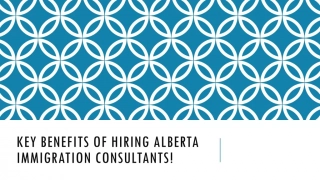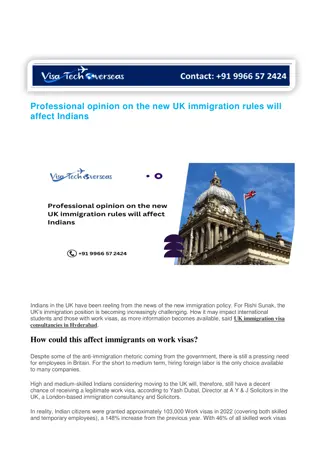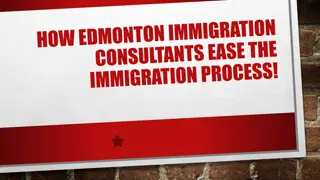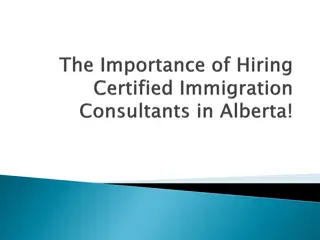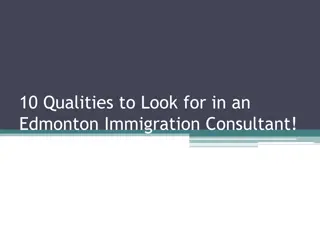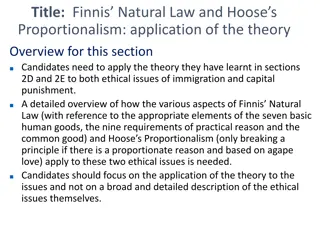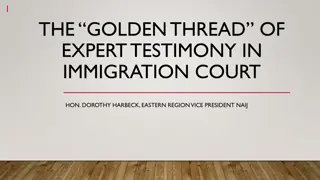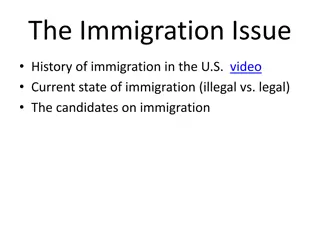Europe's Identity Crisis: Immigration Perspectives
Historically, Europe's stance on immigration has shifted from being an exporter of population to being a haven for those seeking safety and a better life. The contrasting views presented by journalists and politicians highlight the complexity of the immigration debate within Europe.
Download Presentation

Please find below an Image/Link to download the presentation.
The content on the website is provided AS IS for your information and personal use only. It may not be sold, licensed, or shared on other websites without obtaining consent from the author.If you encounter any issues during the download, it is possible that the publisher has removed the file from their server.
You are allowed to download the files provided on this website for personal or commercial use, subject to the condition that they are used lawfully. All files are the property of their respective owners.
The content on the website is provided AS IS for your information and personal use only. It may not be sold, licensed, or shared on other websites without obtaining consent from the author.
E N D
Presentation Transcript
GROUP TWO JOURNALISTS SOURCES
Europes responsibility in times of global crisis Wikimedia Commons Photograph by David Holt, London https://commons.wikimedia.org/wiki/File:Refugees_Welco me_Demo_-_London,_England_-_12_Sep._2015_-_(1).jpg This is an excerpt from an opinion piece entitled Refugees aren t the problem. Europe s identity crisis is, (October 31, 2016) by French journalist and Guardian columnist Natalie Nougayr de: Historically, Europe exported its population, whether to distant colonial possessions for conquest and domination, or to the New World as a consequence of poverty, persecution or war. Now, it has become the foremost magnet and refuge for those who seek safety and a better life. We are simply much richer and more stable than many other parts of the world. And our diversity is set to grow, but not in the great replacement scenario. Europe needs immigration as an injection of youth and dynamism if in the decades to come it wants to address its workforce and pension problems. Source: https://www.theguardian.com/commentisfree/2016/oct/31/refugees-problem-europe-identity-crisis-migration
We have to build Fortress Europe to save our way of life An extract from a Danish newspaper article on Fortress Europe by Danish politician Along with immigration from Muslim countries we see huge problems of unemployment, lack of education, crime, religious radicalism and cultural segregation ( ) Migration is here, and if Europe as we know it is to survive migrants must be repelled. We can do that by building Fortress Europe ( ) We have to take care of our way of life. Of our freedom, affluence, information, creativity, cultural history, human trust, peace, law and order, and the Christian values that we build our civilization on. Munk-Bogballe, David, candidate for the Danish Parliament (7 May, 2018) Vi m bygge Fort Europa for at redde vor livsform Jyllands Posten (in Danish)
/ The government does not explain details about refugees Vladimir Chukov, a specialist on Arabic Studies, university lecturer and scientist in the field of Middle East and Islamic politics Vladimir Chukov, a specialist on Arabic Studies, university lecturer and scientist in the field of Middle East and Islamic politics, 8 September 2015: The Bulgarian government should be much more active in explaining the details - technically and politically - on the issue of refugees, Vladimir Chukov told. According to him, Bulgaria has no information about the migrants that European and world media have to publish. ( ) "In a few days, we will announce results from a hate language project. And the data from it is not encouraging. It turns out that the Bulgarians are not ready and do not agree, for example, to accept their children to be with Syrian refugees in childcare facilities, Chukov said. ( ) The Syrian refugees themselves claim that the attitude of Bulgarians is one of the prerequisites for them to circumvent our country. http://epicenter.bg/article/Pravitelstoto-ne-obyasnyava-detaylite-okolo-bezhantsite-/80427/2/48
Implementation of EU-Turkey deal For those who waited in the Greek mainland just a few months before the EU-Turkey deal, the EU introduced the emergency relocation mechanism in an attempt to unburden Greece and Italy of the thousands of people who arrived daily. With that mechanism EU countries had agreed to relocate around 98,000 refugees from Greece and Italy; yet the scheme had an expiration date. The EU stopped relocation on 26 September 2017, though those who arrived by that day could be still eligible for the scheme. From October 2015 until October 2017, only 31,503 refugees were relocated from Greece and Italy [to other EU countries] This March [2018], the EU-Turkey Deal celebrated its second year of implementation and official statistics show that it works. While in 2015, 856,723 refugees arrived in Greece, in 2016 arrivals were only 173,450 and in 2017 the numbers were remarkably low, as only 29,718 people reached the islands of the Aegean. At the same time, the death toll at the Eastern Mediterranean route is seemingly low In addition, 2,177 refugees were sent back to Turkey from Greece under both deal and the bilateral protocol between Greece and Turkey. Finally, as of March 2018, 12,778 Syrian refugees have been resettled from Turkey to several European countries, with Germany and the Netherlands accepting the largest numbers of people. https://openmigration.org/en/analyses/eu-turkey-deal-the-burden-on-refugees-in-greece/
Christian Charity Is Expensive An extract from a letter to the editor in a Danish newspaper on the wave of Syrian refugees to Denmark "(...) Has it occurred to you that when we are more that have to share the cake, there will be less welfare on offer for each of us? But we have to show Christian charity*, people yell. But that means that some will have to do without. Like your child, your old parents, or you yourself if you are made redundant or become ill. Are you really willing to sacrifice yourself and your beloved ones on the altar of the present refugee lunacy? * Charity, in Christian thought, is the highest form of love and shown in unselfish love of one's fellow men Jarsbo, Erling Meldgaard (7 September 2015) N stek rlighed koster dyrt rhus Stiftstidende (in Danish)
An extract from an email interview with Dott. Francesco ROSCIA IELUZZI, the coordinator of A.P.S. MONDO NUOVO, Lucera (Fg) - Italy The interview was made in November 2018. The current scenario of the refugee crisis in Italy is the mirror of what is happening in the world. There are masses of populations who emigrate because of wars, desertification of the land, famines and from the advance of poverty. Unfortunately, with the use of new technologies the image of a world rich and full of opportunities that comes from Europe and the USA does not correspond to reality. The refugees are moving in search of a better life and a future. As long as there are deaths and economic crises and denial of human rights there will be millions of refugees. The current European immigration policy is a failure. There is no framework law on immigration, each member state legislates according to its needs and current party policies. This overall picture helps to create an instability and a distorted vision of reality. According to my point of view immigration must be done in a harmonious way with a common perspective among all the members of the EU, with a policy also shared with the countries of origin of the refugees. Firstly, a single immigration law should be created [to] create only one Residence Permit valid for the entire Schengen space. Give those who have obtained a residence permit the opportunity to move to look for work. Standardize the application for political asylum. Develop information campaigns in the countries of origin on the real difficulties that are currently in Europe, especially for those who have migrated leaving only for economic problems and not for real problems of persecution or war.Develop International Cooperation projects in a single European and no longer national framework. Develop a single European immigration agency that has greater cooperation between the various national police forces and those of the countries of origin to obtain information on migrants.




